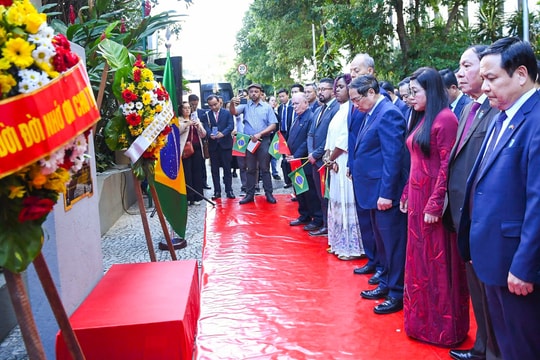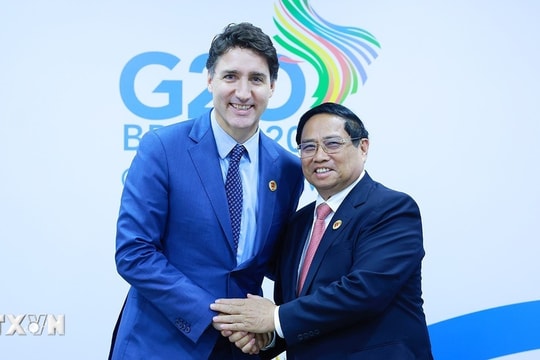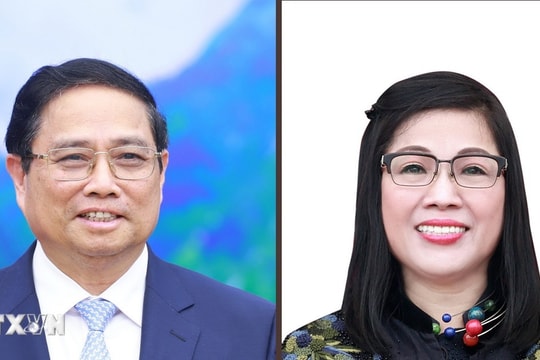What will happen to the East Sea after the G-20 Summit?
Ahead of the G-20 Summit in Hangzhou, the world press has made various predictions about how China will stir up the East Sea.
Beijing’s “patience” after the PCA’s ruling is reasonable, because this is the first time this country is hosting the Summit of 20 developed and emerging economies. They advocate steering the conference to only discuss the global economy, not going into security, especially not discussing China’s wrongdoings regarding the “cow tongue line” in the East Sea.
 |
| Satellite images of China illegally converting a reef in the East Sea into an artificial island and illegally building many military structures on it. Photo: CSIS |
The word "patience"
Senior Fellow for Defense Policy Harry J. Kazianis commented in theAsia TimesRecently, although China is at a disadvantage after the ruling of the International Court of Arbitration in The Hague (Netherlands) on the Philippines' lawsuit against China's "cow tongue line" claim in the East Sea, no one thinks that Beijing will be helpless but will only restrain itself to choose the right time.
Beijing hosted the G-20 Summit for the first time from September 4 to 5 in Hangzhou. Aiming to enhance its status as an emerging superpower, Beijing has chosen a cautious approach in the South China Sea to show that it is a responsible major power and will never be the one to start trouble.
Although China has sent strong messages after the PCA ruling, on the ground there have been no significant escalations in recent times.
Analysts say Beijing is trying to be “patient” before the G-20 Summit in order to react strongly after the summit ends. It is also using a “hiding” tactic to wait for the right moment to react.
That time is considered when the US - the only country with the ability to realistically deter China - is about to embark on the most important task of choosing a President for the 2017-2021 term.
Beijing has chosen the classic scenario in the East Sea of “strong statements with many signals, but no escalation”. With ambition, the G-20 Summit focused on discussing economics, not going into security, especially avoiding discussing the recent PCA ruling.
To the "opportunity"
A senior scholar of Chinese defense policy said that next September, after the end of the G-20 Summit, could be a good time for China to launch a strong response that would attract less international attention.
The Chinese military also feels that it will not face a strong reaction from the United States, as the Obama administration wants to end its term without being drawn into a crisis in Asia. That is an advantage that Beijing certainly cannot ignore.
Recently, the political-military news siteNational Interestquote from the newspaperSouth China Morning PostChina's Foreign Ministry said that Beijing may take steps to change the status quo in the East Sea. Specifically, it will reclaim the Scarborough Shoal, which it disputes with the Philippines.
And the reaction of some countries
According toReuters, Indonesia, a Southeast Asian country with a role as a member of the G-20, may not forget to put the East Sea issue on the agenda, although Jakarta still prioritizes strengthening bilateral cooperation with the host country, rather than representing Southeast Asian countries.
Mr. Pierre Marthinus, executive director of the Marthinus Academy of International Relations (Jakarta), commented on the newspaper.South China Morning Postthat: President Widodo “focuses on Indonesia's strategic interests” but he still does not forget to talk about the East Sea issue.
Mr. Aaron Connelly, a researcher specializing in Indonesia at the Lowy Institute for International Policy (Australia), has a different opinion: "Indonesia sees itself as a rising power in Southeast Asia, and therefore will seek inspiration from China for its economic growth efforts when it comes to Hangzhou - China."
Jakarta’s bilateral relationship with Beijing has important implications for all three pillars of Widodo’s central strategy of turning Indonesia into a “maritime axis of the world” to boost economic growth, secure its borders and protect marine resources in its exclusive economic zone.
“President Widodo sees China as an important partner, especially in infrastructure investment. Therefore, he will not have a major impact on the upcoming G-20 Summit, but will focus on bilateral opportunities,” said Connelly.
As of 2014, bilateral trade between China and Indonesia had reached $50 billion, and Indonesia is expected to be the biggest beneficiary of Beijing’s $87 billion infrastructure investment package under its “One Belt, One Road” strategy. Chinese investment in Indonesia increased by 400% in the first quarter of 2016.
Relations between Jakarta and Beijing have been strained since the beginning of this year, revolving around China’s landing of fishing vessels near Indonesia’s Natuna Islands in the South China Sea. In his address to the nation on August 15, Mr. Widodo pledged to “protect every inch of the country’s sovereignty.”
However, in the past, Jakarta often emphasized staying out of territorial disputes in the East Sea, but in recent years, the country has also begun to be concerned about Beijing's expansion in the East Sea, making this issue a "bottleneck" in the relationship between the two countries. Indonesia has also declared that it does not recognize China's "nine-dash line".
When the Hague-based Permanent Court of Arbitration ruled against China’s “historic rights” in the South China Sea in July, Indonesia called on all parties to “protect Southeast Asia, especially to avoid military actions that could threaten regional peace and stability,” and urged China and the Philippines to respect international law, especially the 1982 United Nations Convention on the Law of the Sea (UNCLOS). Chinese officials said this was “a move that shows Indonesia is moving away from its previous firm stance on this issue.”
The Philippines has also just formed a negotiating team with China led by former Philippine President Fidel Ramos. This is considered the first “ice-breaking” meeting since the Court’s ruling.
PageNational InterestCiting sources quoted by Chinese newspapers, the Chinese newspaper said that it would put pressure on the Philippines to "reconcile". On the one hand, Manila would have to restrain the dispute, and on the other hand, it would have to seek compromise terms to reach a reconciliation with China, based on the ruling from the PCA./.
According to VOV
| RELATED NEWS |
|---|





